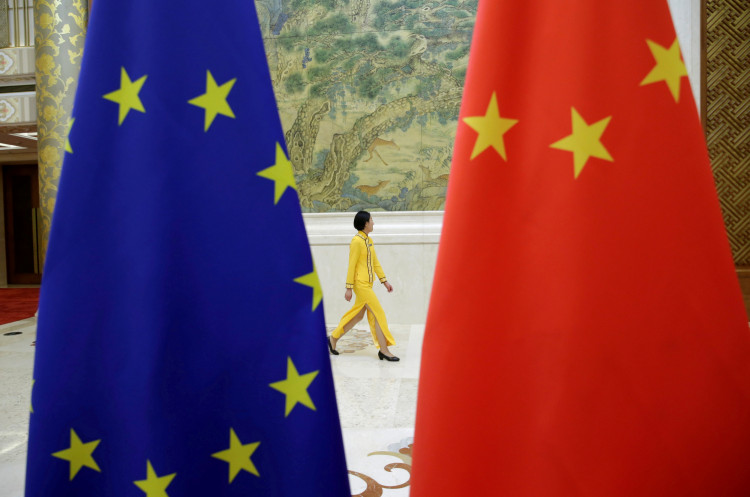Key Takeaways:
- The EU has adjusted its proposed tariffs on Chinese EV imports, slightly lowering some rates.
- The tariffs follow an anti-subsidy investigation into Chinese EV manufacturers.
- China has threatened retaliation, and both sides are engaging in consultations.
- The outcome of this dispute could have significant implications for the global EV market and international trade relations.
The European Union has revised its proposed tariffs on electric vehicles imported from China, reflecting ongoing consultations between the two economic powers. These changes come after receiving additional information from affected companies.
Initially, the European Commission had suggested tariffs ranging from 17.4% for BYD to 38.1% for other Chinese battery electric vehicle (BEV) producers that had not cooperated with the EU's anti-subsidy investigation.
The new rates, set to take effect on July 4, show a slight reduction: SAIC and other non-cooperating producers will now face a 37.6% levy, Geely Automobile's tariff has been adjusted to 19.9% from 20%, and the tariff for BYD remains unchanged at 17.4%. EV producers that cooperated but were not sampled in the investigation will be subject to a 20.8% duty, down slightly from the initially proposed 21%.
The European Commission's investigation, launched in October 2023, aims to determine whether Chinese EVs imported into the EU benefit from illegal subsidies that could harm EU producers. The Commission has provisionally concluded that China's BEV value chain benefits from unfair subsidization, posing a threat of economic injury to EU BEV manufacturers. The proposed provisional duties are being introduced by a guarantee, meaning they will only be collected if and when definitive duties are imposed. The definitive duties are expected to be finalized by November.
China has threatened to retaliate against the EU's tariffs, already launching a targeted anti-dumping probe on pork imports and hinting at potential measures against agricultural goods, aviation, and large-engine cars from the EU. Amid these rising tensions, China's Commerce Minister Wang Wentao and Valdis Dombrovskis, Executive Vice President of the European Commission, have agreed to start consultations on the EU's anti-subsidy investigation.
Wan Gang, president of the China Association for Science and Technology and a key figure in China's electric car strategy, suggested that Chinese investment in the European EV industry could be a way forward. Speaking at the World Economic Forum's "Summer Davos" meeting in Dalian, China, Wan emphasized the potential for such investments to create local jobs and foster cooperation.
The EU's move to impose tariffs on Chinese EVs marks a significant moment in the broader context of global trade relations. The tariffs are intended to address the perceived unfair advantage Chinese manufacturers have due to state subsidies. However, the situation also underscores the complexities of balancing protectionist measures with the need for international cooperation in the rapidly evolving EV market.
Wan Gang's insights into China's strategic pivot to electric vehicles offer a deeper understanding of the motivations behind the country's policies. Having worked in Germany and experienced oil price volatility firsthand, Wan advocated for China's shift to electric vehicles as a means of ensuring energy security and addressing severe air pollution issues in Chinese cities.
The market has reacted swiftly to these developments. Following the announcement of the revised tariffs, the yuan hit a seven-month low against the dollar, reflecting the broader economic uncertainties introduced by the trade tensions. Analysts remain cautious, with some predicting further volatility in the coming months. The EU's decision to adjust the tariffs slightly suggests a willingness to engage in dialogue, yet it also highlights the bloc's commitment to protecting its own industries from what it perceives as unfair competition. As both sides prepare for further negotiations, the outcomes will likely have significant implications for the global EV market and international trade relations.
Despite the current tensions, there is potential for future cooperation between the EU and China. Both sides have much to gain from a resolution that allows for fair competition and mutual growth. The consultations between Chinese and EU officials could pave the way for a more balanced trade relationship, benefiting both economies and contributing to the global transition to electric vehicles. As the situation unfolds, industry stakeholders and policymakers will be closely watching the developments. The final resolution of this trade dispute could set important precedents for how such conflicts are managed in the future, particularly in sectors as critical as electric vehicles.





